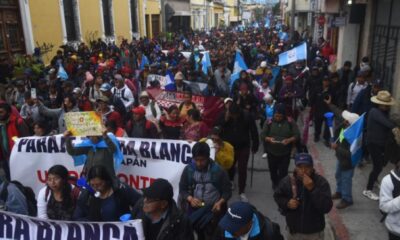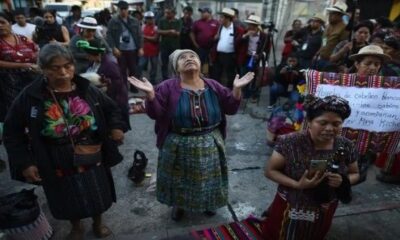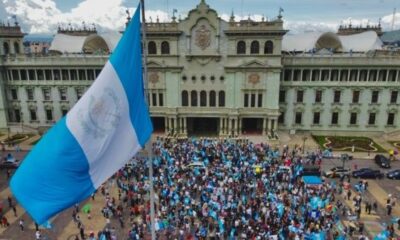International
Guatemalan prosecutors and justice operators lack security guarantees in province
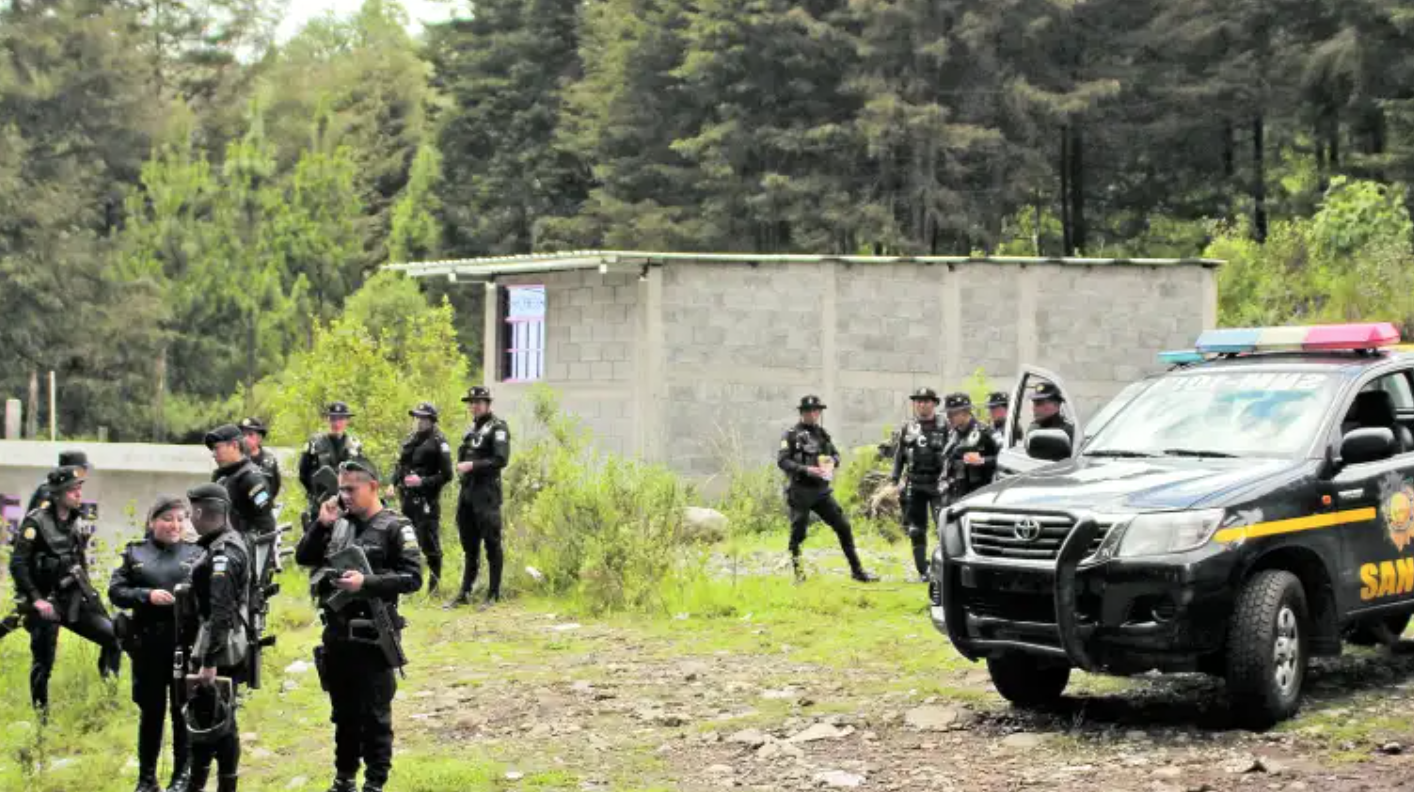
October 24 |
The kidnapping 29 days ago of a prosecutor and two investigators from the Public Ministry (MP) in Tajumulco, San Marcos, reveals the vulnerability of the investigators in the province.
This situation is caused by several factors, such as insufficient support from the National Civil Police (PNC) and the dominance that criminal structures have over municipal and departmental authorities, according to a former secretary of the Public Prosecutor’s Office and an analysis of the situation by the Pro-Justice Movement.
On September 25, a prosecutor and two investigators from the Public Prosecutor’s Office (MP) were kidnapped by residents of the village of Tuinimá, Tajumulco, San Marcos, who demanded the closure of the municipal headquarters of the MP in Tajumulco and the release of two people linked to the crime of an army colonel.
As of yesterday, the MP workers had been in this situation for 28 days. According to the official report of the auxiliary of the Human Rights Ombudsman’s Office, the reason for the kidnapping is because the victims were carrying out a field inspection related to the theft of electricity.
“Being a prosecutor at the municipal or departmental level is different from being a prosecutor in Guatemala City,” says Javier Monterroso, ex-secretary of the MP, who affirms that the prosecutors and investigators assigned in the province work with many “precariousnesses” and normally only investigate common crimes, so as not to enter into confrontation with the inhabitants or put themselves at risk from organized crime.
“Their work is more complicated because there are fewer PNC agents and MP personnel, but in addition, many members of the security forces themselves are committed to the powers that be, politicians and drug traffickers,” Monterroso said.
He also states that in the province, municipal and departmental authorities depend a lot on the criminal structures in the region, and for this reason, when it comes to investigating criminal structures, prosecutors are asked not to be from the department so that there are no reprisals, and they opt to bring prosecutors from the capital city, in addition to the support of the army.
“But even so, prosecutors are very vulnerable because of the above situations and when they are retained by the population, they are tied up and beaten on the orders of community leaders or organized crime,” says Monterroso.
The former secretary of the MP says that even some of the workers who have been retained have said that they are subjected to psychological abuse, when they are threatened that they will be burned and “they show them or gasoline”.
Retention of personnel, according to Monterroso, has occurred most frequently when investigating illegal electricity connections or when tracking poppy plantations.
For Carmen Aída Ibarra, director of Movimiento ProJusticia, these events are more recurrent in Huehuetenango and San Marcos, mainly in the border areas with Mexico, due to the presence of drug trafficking.
“In some places, the economy of the communities depends on illegal crops and contraband, and the physical integrity of the prosecutors is at risk,” said Ibarra.
The researcher and expert in the justice sector reiterates that there are communities where the population rejects the presence of the PNC and the MP and prefers to act according to their rules, often to defend the interests of organized crime or the community itself, “when the local economy is affected”.
Ibarra affirms that the lack of security guarantees for prosecutors and investigators of the MP in the province is compounded by the fear of being removed or dismissed.
“In 2021 there was a series of transfers and removals that affect them, because they are sent far from their residence. They live in fear, because they do not know when they will be transferred or dismissed,” said Ibarra.
International
Winter Storm Fern Leaves 30 Dead and Over One Million Without Power Across the U.S.
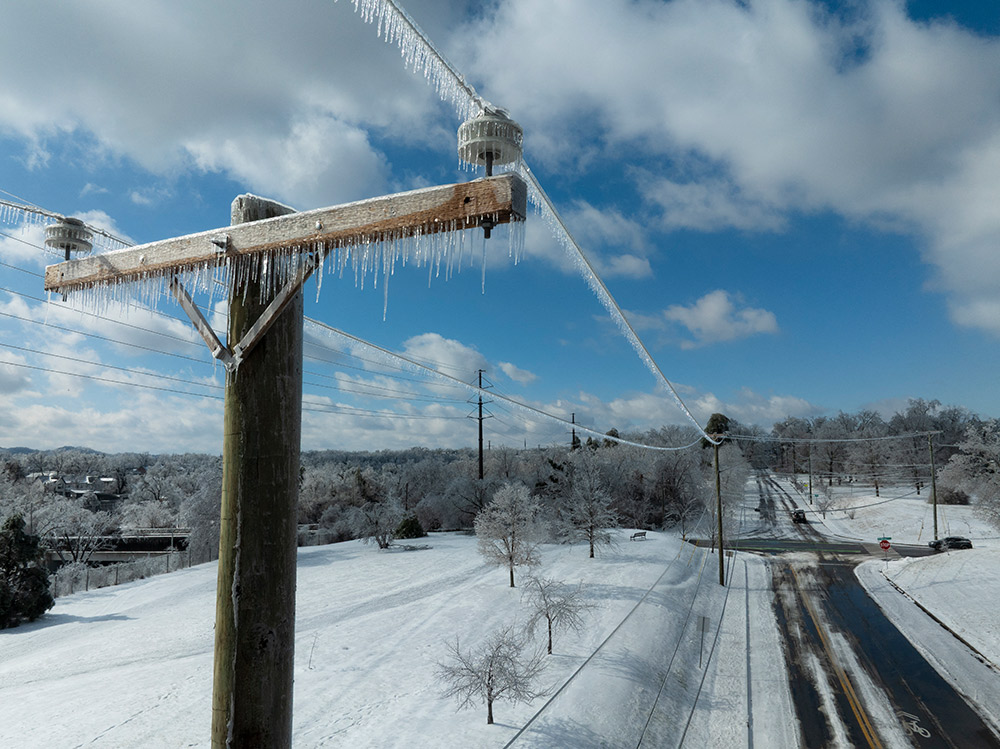
The massive winter storm Fern, bringing polar temperatures, battered large portions of the United States for a third consecutive day on Monday, leaving at least 30 people dead, more than one million households without electricity, and thousands of flights grounded.
In the Great Lakes region, residents awoke to extreme cold, with temperatures dropping below -20°C. Forecasts indicate that conditions are expected to worsen in the coming days as an Arctic air mass moves south, particularly across the northern Great Plains and other central regions, where wind chills could plunge to -45°C, temperatures capable of causing frostbite within minutes.
Across the country, heavy snowfall exceeding 30 centimeters in roughly 20 states triggered widespread power outages. According to PowerOutage.com, nearly 800,000 customers remained without electricity on Monday morning, most of them in the southern United States.
In Tennessee, where ice brought down power lines, approximately 250,000 customers were still without power. Outages also affected more than 150,000 customers in Mississippi and over 100,000 in Louisiana, as utility crews struggled to restore service amid dangerous conditions.
International
Spain approves plan to regularize up to 500,000 migrants in Historic Shift
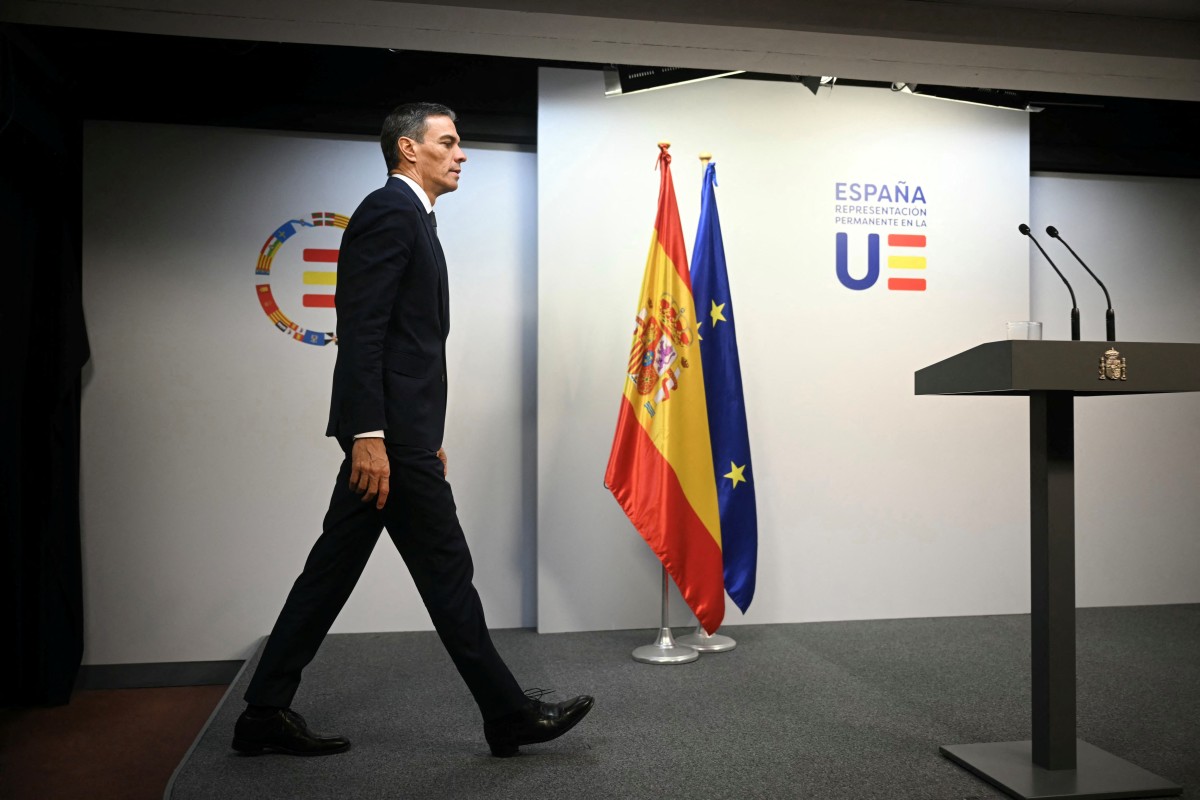
In November 2024, Spanish Prime Minister Pedro Sánchez announced a reform of the country’s immigration regulations aimed at regularizing 300,000 migrants per year over a three-year period, in an effort to counter population aging in a country where births have fallen by 25.6% since 2014, according to official data.
Going against the trend in much of Europe, Spain’s left-wing government has now approved an exceptional migrant regularization plan that could benefit up to 500,000 people, most of them from Latin America.
The measure will allow the regularization of around “half a million people” who have been living in Spain for at least five months, arrived before December 31, 2025, and have no criminal record, Migration Minister Elma Saiz explained on public television.
The plan, approved on Tuesday by the Council of Ministers, establishes that applications will be processed between April and June 30, enabling beneficiaries to work in any sector and anywhere in the country, Saiz said.
“Today is a historic day for our country. We are strengthening a migration model based on human rights, integration, and one that is compatible with economic growth and social cohesion,” the minister later stated at a press conference.
The socialist government of Pedro Sánchez stands out within the European Union for its migration policy, contrasting with the tightening of immigration measures across much of the bloc amid pressure from far-right movements.
Central America
Honduras swears in conservative president Asfura after disputed election

Conservative politician Nasry Asfura assumed the presidency of Honduras on Tuesday with an agenda closely aligned with the United States, a shift that could strain the country’s relationship with China as he seeks to confront the economic and security challenges facing the poorest and most violent nation in Central America.
Asfura’s rise to power, backed by U.S. President Donald Trump, marks the end of four years of left-wing rule and secures Trump another regional ally amid the advance of conservative governments in Chile, Bolivia, Peru, and Argentina.
The 67-year-old former mayor and construction businessman was sworn in during an austere ceremony at the National Congress, following a tightly contested election marred by opposition allegations of fraud and Trump’s threat to cut U.S. aid if his preferred candidate did not prevail.
Grateful for Washington’s support, Asfura—who is of Palestinian descent—traveled to the United States to meet with Secretary of State Marco Rubio, before visiting Israeli Prime Minister Benjamin Netanyahu.
“We need to strengthen relations with our most important trading partner,” Asfura said after being declared the winner of the November 30 election by a narrow margin, following a tense vote count that lasted just over three weeks.
-

 Central America2 days ago
Central America2 days agoGuatemala seizes over a ton of cocaine hidden in flour at Pacific port
-

 Central America4 days ago
Central America4 days agoGuatemala’s president rules out negotiations with inmates after prison riots
-

 International4 days ago
International4 days agoTrump-Era Defense Plan Prioritizes Border Security and Scales Back Global Commitments
-

 Internacionales4 days ago
Internacionales4 days agoMajor winter storm threatens “catastrophic” ice and snow across much of the U.S.
-

 International4 days ago
International4 days agoBogotá and Quito Seek Dialogue After Tariffs and Power Cut Escalate Tensions
-

 International3 days ago
International3 days agoDelcy Rodríguez seeks political agreements after Maduro’s ouster
-

 International4 days ago
International4 days agoGuatemala considers sending high-risk gang members to military prisons
-

 International2 days ago
International2 days agoHistoric snowstorm paralyzes Toronto after 60 centimeters of snow
-

 International2 days ago
International2 days agoSpain’s irregular migrant population rises to 840,000, study finds
-

 International3 days ago
International3 days agoFederal immigration agents kill man in Minneapolis, sparking protests and outrage
-

 Central America14 hours ago
Central America14 hours agoGuatemala Police Arrest Prison Guard Caught in the Act of Extortion
-

 International14 hours ago
International14 hours agoDoomsday clock moves to 85 seconds before midnight amid rising global risks
-

 International4 days ago
International4 days agoRights group says over 5,000 killed in Iran protests, mostly civilians
-

 International14 hours ago
International14 hours agoWinter Storm Fern Leaves 30 Dead and Over One Million Without Power Across the U.S.
-

 Central America14 hours ago
Central America14 hours agoHonduras swears in conservative president Asfura after disputed election
-

 International2 days ago
International2 days agoRights group says nearly 6,000 killed in Iran protest crackdown
-

 Sin categoría14 hours ago
Sin categoría14 hours agoEight Killed in Series of Armed Attacks in Ecuador’s Manabí Province
-

 Central America15 hours ago
Central America15 hours agoBukele leads public trust rankings as UCA survey highlights gains in security
-

 International2 days ago
International2 days agoVenezuela frees at least 80 political prisoners, NGO says
-

 International14 hours ago
International14 hours agoSpain approves plan to regularize up to 500,000 migrants in Historic Shift
-

 International2 days ago
International2 days agoEU launches new probe into X over AI-generated fake nude images
-

 Sin categoría14 hours ago
Sin categoría14 hours agoEl Salvador Launches Fourth Year of Ocean Mission to Protect Marine Ecosystems
-

 International2 days ago
International2 days agoSevere winter storm grips U.S., leaves multiple dead as extreme cold persists
-

 International2 days ago
International2 days agoFrance debates ban on social media for children under 15















































































